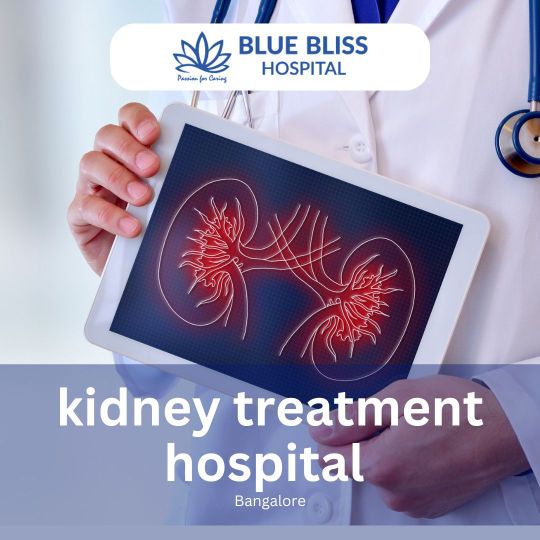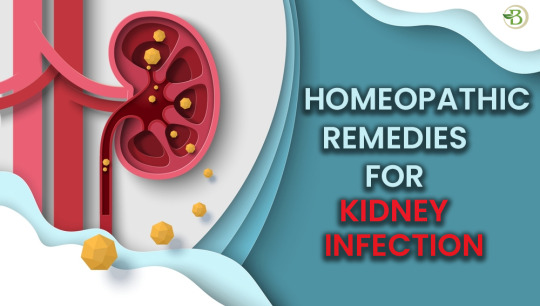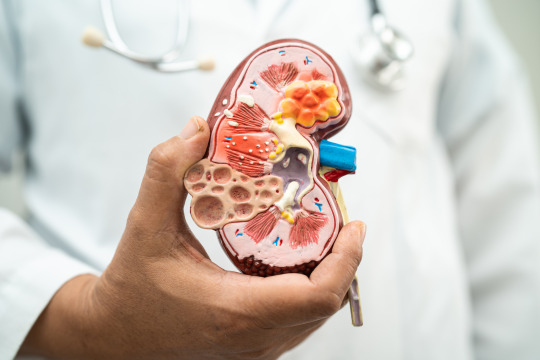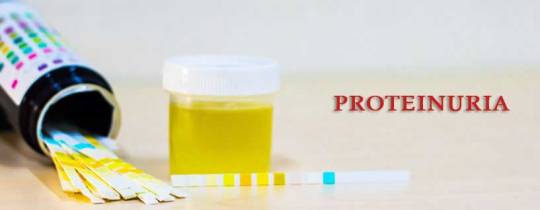#Kidney treatment
Text


So after 5 long years 127 surgeries and two comas on the 4th of July I got the call to get a kidney and on the 5th at 6am they put it in. Everything went absolutely amazing and I am now home.
7 notes
·
View notes
Text

India will proudly celebrate its 77th Independence Day
“Nation First, Always First,”
Happy Independence Day! Jai Hind!
सभी देशवासियों को 77वें स्वतंत्रता दिवस की हार्दिक शुभकामनाएँ।
#kidneycare#kidneyawareness#kidney transplant#kidney stone#kidney specialist#kidney treatment#kidney pain#kidney hospital
2 notes
·
View notes
Text
Kidney Treatment Hospital in Bangalore

Embark on a journey of healing with Blue Bliss Hospital, the epitome of kidney treatment excellence in Bangalore. With a dedicated team of nephrology experts, cutting-edge technology, and unwavering patient support, Blue Bliss Hospital offers unparalleled care and hope to those battling kidney ailments. Trust in Blue Bliss Hospital for compassionate and comprehensive kidney treatment, ensuring a brighter and healthier future for all.
0 notes
Text
GET RID OF KIDNEY STONES WITH THESE TREATMENTS
This blog is about how to get rid of kidney stone.
Kidney stones, also known as renal calculi, are hard mineral and salt deposits that form in the kidneys. These stones can cause excruciating pain and discomfort, and if left untreated, they can lead to serious complications. Seeking proper treatment for kidney stones is crucial to alleviate pain, prevent complications, and improve overall health. In this blog, I will provide an in-depth guide on understanding kidney stones, the importance of choosing the best urology hospital in Jaipur, the available treatments for kidney stones in Jaipur, and the best practices for preventing their recurrence.

Understanding Kidney Stones
Causes and Risk Factors
Kidney stones can develop due to various factors. The most common cause is the concentration of certain substances in the urine, such as calcium, oxalate, and uric acid. Other risk factors include dehydration, family history of kidney stones, certain medical conditions like urinary tract infections, and certain medications. Understanding the causes and risk factors can help individuals take preventive measures to reduce the likelihood of developing kidney stones.
Symptoms and Diagnosis
Recognizing the symptoms of kidney stones is essential for early detection and treatment. The typical symptoms include severe pain in the back or side, blood in the urine, frequent urination, and a persistent urge to urinate. If you experience any of these symptoms, it is important to seek medical attention promptly. A urologist will conduct a thorough evaluation, which may include a physical examination, urine tests, blood tests, imaging tests such as X-rays or CT scans, and sometimes a stone analysis. These diagnostic tests will help determine the size, location, and composition of the kidney stones, and guide the appropriate treatment plan.
Types of Kidney Stones
There are different types of kidney stones, each with its own unique composition. The most common types include calcium stones, uric acid stones, struvite stones, and cystine stones. Calcium stones are the most prevalent and are typically formed when calcium combines with oxalate or phosphate. Uric acid stones form when there is an excess of uric acid in the urine. Struvite stones are often associated with urinary tract infections, while cystine stones are rare and occur due to a genetic disorder. Identifying the type of kidney stone is crucial for determining the most effective treatment approach.
Importance of Choosing the Right Urology Hospital and Urologist in Jaipur
Role of Urology Hospitals in Kidney Stone Treatment
When it comes to kidney stone treatment, choosing the right urology hospital in Jaipur is of utmost importance. Urology hospitals specialize in diagnosing and treating conditions related to the urinary tract, including kidney stones. These hospitals have state-of-the-art equipment and facilities to provide accurate diagnoses and offer a wide range of treatment options. Additionally, urology hospitals have experienced urologists who are experts in managing kidney stone cases and ensuring the best possible outcomes for patients.
Factors to Consider When Choosing the Best Urology Hospital in Jaipur
When selecting a urology hospital for kidney stone treatment in Jaipur, there are several factors to consider. First and foremost, ensure that the hospital has a team of skilled urologists who specialize in kidney stone treatment. Look for hospitals that have a good reputation and positive patient reviews. It is also important to consider the hospital's infrastructure, availability of advanced diagnostic tools, and the success rate of their kidney stone treatments. Additionally, check if the hospital provides comprehensive post-treatment care and support to ensure a smooth recovery.
Importance of Consulting the Best Urologist in Jaipur for Effective Treatment
Consulting the best urologist in Jaipur is crucial for effective kidney stone treatment. A skilled and experienced urologist will thoroughly evaluate your condition, consider your medical history, and recommend the most suitable treatment option. They will explain the procedure in detail, address any concerns or questions you may have, and provide personalized care throughout the treatment process. The expertise and guidance of a trusted urologist can significantly improve the chances of successful kidney stone treatment and minimize the risk of complications.
Available Treatments for Kidney Stones in Jaipur
In Jaipur, there are several effective treatments available for kidney stones. The choice of treatment depends on factors such as the size, location, and composition of the stones. Common treatment options include:
Extracorporeal Shock Wave Lithotripsy (ESWL): This non-invasive procedure uses shock waves to break the kidney stones into smaller pieces, making them easier to pass through the urinary tract.
Ureteroscopy: A thin tube with a camera is inserted into the urethra and up to the bladder and ureter to locate and remove the stones. This procedure is usually performed under general anesthesia.
Percutaneous Nephrolithotomy (PCNL): This surgical procedure involves making a small incision in the back to access the kidney and remove the stones. PCNL is typically recommended for large or complex kidney stones.
Open Surgery: In rare cases where other treatments are not feasible or effective, open surgery may be required to remove the kidney stones. This procedure involves making a larger incision in the back or side to directly access the kidney.
The choice of treatment will be determined by your urologist based on your specific condition and individual needs.
Best Practices for Preventing Kidney Stones Recurrence
Preventing the recurrence of kidney stones is crucial to maintain kidney health. Here are some best practices to minimize the risk of developing future kidney stones:
Stay Hydrated: Drink an adequate amount of water throughout the day to maintain proper hydration. Sufficient fluid intake helps dilute urine and prevents the formation of concentrated minerals that can lead to stone formation.
Follow a Balanced Diet: Adopt a diet that is low in sodium, oxalate, and animal protein. Incorporate foods rich in calcium and citrate, such as dairy products, leafy greens, and citrus fruits, as they can help prevent certain types of kidney stones.
Manage Weight and Exercise Regularly: Maintaining a healthy weight through proper diet and regular exercise can reduce the risk of kidney stone formation.
Limit Certain Foods and Beverages: Limit the consumption of foods and beverages that are high in oxalate, such as spinach, chocolate, tea, and nuts, as they can contribute to the formation of calcium oxalate stones.
Monitor Medications: Some medications can increase the risk of kidney stone formation. Consult with your healthcare provider about the potential side effects of your medications and discuss alternative options if necessary.
By adopting these preventive measures and making lifestyle changes, you can significantly reduce the likelihood of kidney stone recurrence.
Conclusion
Kidney stones can cause intense pain and discomfort, but with proper treatment and preventive measures, they can be effectively managed. Choosing the right urology hospital and consulting the best urologist in Jaipur are crucial steps in the treatment process. With the availability of various treatment options and the implementation of preventive practices, individuals can get rid of kidney stones and improve their overall kidney health. Remember to consult with a healthcare professional for a personalized treatment plan and advice tailored to your specific needs. Take control of your kidney health and say goodbye to kidney stones for good.
CTA: If you're looking for the best urologist doctor in Jaipur and comprehensive kidney stone treatment, contact Vandana Memorial Hospital today to schedule a consultation. Your journey towards a stone-free life starts here!
Other Links:
Best dermatologist Hospital in Jaipur
Best Orthopedic Hospital in Jaipur
Best Plastic Surgery Hospital in Jaipur
Hair Transplant Hospital in Jaipur
Best neurosurgeon Hospital in Jaipur
Best General Physicians In Jaipur
Best urology hospital in Jaipur
Cancer Specialist in Jaipur
Best Gastroenterologist hospital in Jaipur
ENT Hospital in Jaipur
Best Physiotherapy Hospital in Jaipur
Best Radiology Hospital in Jaipur
Best Cardiology Hospital in Jaipur
#urologist in jaipur#kidney stone specialist#kidney treatment#doctor#multispecialityhospital#hospital#doctor who#healthcare#health & fitness
0 notes
Text
Discovering Renal Dysfunction: exposing the Details of Kidney Disease
The kidneys, vital organs within the human body, play a significant role in filtering out waste products and excess liquids from blood, maintaining an electrolyte balance, and regulating blood pressure. Kidney problems can be caused due to several factors, including genetics, infections, or lifestyle choices. Renal Cysts, fluid-filled cysts located within the kidneys, can be present without symptoms. If they grow, however, they can cause pain and complications. Bacteria can cause kidney infections and can cause severe pain. It may also result in a fever or urinary complications. Kidney Failure, the most severe condition of the kidneys, is caused when the renals fail to function as they should, leading to an accumulation of fluids and toxins.

Homeopathy relies on the principle that "like cures," which means substances that cause symptoms in healthy people can be diluted and administered to stimulate the body’s healing mechanisms. Homeopathy is an excellent remedy for kidney infections.
Instead of merely treating symptoms, homeopathic remedy for kidney infection aim to eliminate the cause. The treatment of kidney diseases with homeopathy focuses on tailored remedies based on each patient's symptoms, medical history, and constitutional characteristics.
For kidney cyst treatment, homeopathic remedies are indicated for renal congestion accompanied by stinging and burning pain. Some are indicated for sharp pains and cutting sensations in the kidney region. Some are recommended for renal colic, which causes shooting pains to radiate into the bladder. These remedies can be administered precisely to reduce the size of cysts, ease discomfort, and restore renal function.
Homeopathy can be used to treat kidney infections. It offers remedies that are prescribed for fevers, thirst, and pains. These remedies are helpful for urinary infection symptoms such as burning and cutting pains. Some cases are caused by kidney inflammation. Pain can also be felt in the bladder and the urethra. Homeopathic medicine treats the renal cyst by targeting the underlying infection and promoting urinary tract wellness and immune system resilience.
Homeopathy Treatment for Kidney Disease:
While kidney failure can be a significant challenge, Homeopathic medicine for renal cyst is an effective way to slow the disease's progression and improve the quality of your life. These remedies treat kidney failure when there are digestive disturbances and urinary symptoms. These treatments target weakening, anxiety and reduced kidney function. These are prescribed for kidney failure patients who suffer from extreme weakness, restlessness, or health anxiety. These remedies help to enhance renal functions, manage symptoms, and promote overall wellbeing in patients suffering from kidney failure.
Conclusion:
kidney treatment by homeopathy is gentle yet effective. This includes renal cysts, infections, and kidney failure. Homeopathy can provide personalised treatments that complement traditional medical interventions. It addresses imbalances within the human body and stimulates it to heal itself. Individuals seeking homeopathic treatment for kidney failure should consult a qualified practitioner and integrate the treatment into a comprehensive care plan. Homeopathy offers a holistic approach and an individualised treatment plan that can be a valuable adjunct to kidney health.
#Kidney treatment#kidney infection#homeopathic remedies#AKI Treatment#high creatinine#Chronic Kidney Disease
0 notes
Text
Empowering Kidney Stone Patients: Types, Symptoms, and Proactive Solutions
Empower yourself with essential knowledge about kidney stones, including their types, symptoms, and proactive solutions for effective management. Take charge of your kidney health journey with confidence and clarity.
0 notes
Text
Kidney Hospital in Srinagar

At Khosla Stone Kidney & Surgical Centre, we are dedicated to providing exceptional care for kidney-related issues and surgical procedures. Our team of experienced doctors and specialists are committed to delivering personalized care tailored to your needs. Schedule your consultation at the best Kidney Hospital in Srinagar.
0 notes
Text

Kidney stones can cause a range of symptoms, which may vary depending on the size and location of the stone. Here are five common symptoms associated with kidney stones If you suspect you have kidney stones or experience any of these symptoms, it's crucial to seek medical attention for proper diagnosis and treatment.
Consult Us: +91 7970 108 108 or [email protected]
0 notes
Text
So as some of you may know I have end stage kidney disease and have been working very hard to get on the transplant list. Well this morning I got the call saying I am on the list and at the top so have a bag ready for the call that could happen at any time. So fics may stop for a bit suddenly that's mostly I'm in the hospital with a new kidney.
4 notes
·
View notes
Text

Explore essential tips and expert insights on maintaining optimal kidney health with Mukat Hospital. Discover effective ways to support your child's kidney well-being through proper nutrition, hydration, and lifestyle choices. Prioritize your child's health with our comprehensive guide to safeguarding their kidneys for a vibrant and active life. Trust Mukat Hospital for personalized care and guidance in promoting a kidney-friendly lifestyle for your little ones. Book your appointment at +91 9023884444
1 note
·
View note
Text
Kidney Transplant Cost in Kerala: Understanding the Financial Aspects
Kidney transplantation offers a life-saving and life-altering solution for individuals with end-stage kidney disease. However, the cost of such a procedure can be a significant concern, especially in India. Here, we provide an overview of kidney transplant costs in Kerala, considering various factors and considerations.
Cost Breakdown:
The overall cost of a kidney transplant in Kerala typically ranges from INR 5 lakhs to INR 10 lakhs, excluding pre- and post-operative expenses. This breakdown includes:
Hospital charges.
Surgeon's fees.
Donor evaluation and preparation.
Immunosuppression medication.
Follow-up visits and tests.
Additional Expenses:
Post-operative tests.
Travel and accommodation.
Diet and nutrition.
Factors Affecting Cost:
Hospital type.
Surgeons experience.
Type of transplant.
Complications.
Financial Assistance:
Several government schemes and charitable organizations offer financial assistance for kidney transplants in Kerala. Additionally, some private insurance plans may cover a portion of the costs.
While the initial cost of a kidney transplant in Kerala might seem substantial, it's crucial to consider the long-term benefits of improved quality of life and freedom from dialysis dependence. Consulting with a renowned transplant specialist like Dr. Harigovind at Calicut can provide a personalized cost estimate and discuss potential financial assistance options. His vast experience and commitment to patient well-being make him a trusted choice for navigating the kidney transplant journey in Kerala.
For further information, kindly visit our website.
0 notes
Text

LUPUS NEPHRITIS
Lupus stands as a prominent name amongst the myriad systemic chronic inflammatory conditions resulting from an individual's immune system attacking their own tissues.
The condition derives its name from the Latin word for wolf because of the characteristic butterfly-shaped rash stretching across both cheekbones that appear like a wolf bite.
Lupus is incurable, the clinical presentation is variable with occasional debilitating flares and complications that could be potentially fatal if left untreated.
Among other organs, Kidneys are a prime target here causing inflammation and patchy progressive scarring in the kidney tissue in around 20-63% of all Lupus cases. This entity is clinically called Lupus Nephritis - a major cause of morbidity & mortality globally.
As a portal dedicated to demystifying nuggets in nephrology, let us walk you through the what-why-how Lupus Nephritis by linking to a lucid article in our website as below:
👇🏻
P.S. : We are mindful of the existence of individual variations that apply to any medical condition. The article attempts to offer a comprehensive insight into the commonly encountered clinical picture in Lupus nephritis.
#chronic kidney disease#kidney#kidney disease#health#health blog#allthingskidney#kidneydisease#kidneyhealth#kidney failure#lupus nephritis#systemic lupus erythematosus#lupus#kidneydiseaseawareness#kidney treatment
0 notes
Text
Renal Rescue: Natural Treatments for Kidney Diseases
Renal cysts are prevalent and affect millions worldwide. Many individuals are seeking alternative therapies, such as homeopathy, for their gentle yet powerful approach to healing. This comprehensive guide examines the principles and specific remedies of homeopathic medicine for renal cysts.
Understanding Renal Cysts, Kidney Infections
Renal cysts develop in the kidneys and often do not cause symptoms. However, more extensive and multiple cysts are more likely to cause pain, discomfort, or complications, such as bleeding or infection. The other is a renal infection or pyelonephritis. It occurs when bacteria enter the kidneys and cause inflammation.
Homeopathic Medicine:
homeopathic remedy for kidney infection works on the "like cures as" principle, whereby highly diluted chemicals that cause symptoms in healthy people are used to trigger the body's healing response. In addition, homeopathy considers an individual's holistic state, including mental, emotional, and physical aspects, to tailor treatment accordingly.
Homeopathic Treatments for Renal Cysts
Renal Cysts that cause burning and stinging sensations are treated with homeopathic remedies. It may reduce swelling and cyst size. The Homeopathic Remedies for Renal Cysts is proper for cysts causing severe burning and cutting pains. This occurs most often when you urinate. homeopathic medicine for renal cyst can also reduce inflammation and relieve discomfort. Cysts can cause digestive issues such as bloating and flatulence. Also, they can be beneficial to people with anxiety or fear. Some remedies are suitable for renal colic associated with cysts or kidney stones. They relieve sharp, shooting aches that radiate outward from the kidneys and into the bladder.
Homeopathic Treatments for Kidney Infections
If kidney infection is accompanied by a sudden onset of pain, high fever, or intense throbbing, these remedies can be prescribed to reduce fever and inflammation. The abovementioned treatments are effective for infections that cause burning pain and frequent urging.
They are best for those with mild symptoms that may change over time and a desire to cool off. They can help treat kidney-related urinary infections.
If you have kidney infections that are accompanied by swelling of the eyelids and a lack of urine, this may help relieve your symptoms. It reduces inflammation and promotes diuresis.
Homeopathic treatment for acute kidney injury (AKI)
These remedies are helpful in AKI, which is caused by trauma. Some of these remedies can reduce swelling, bruising and inflammation. This helps to promote healing. AKI may be accompanied by restlessness, stiffness and aggravation of the initial movement. Remedy can help to ease discomfort and encourage mobility. AKI patients who are experiencing anxiety, restlessness, and weakness can benefit from this remedy. acute kidney injury treatment can help to support overall recovery and renal function. The sharp stabbing pains are made worse by even the slightest movements. It also treats excessive thirst and dry mucous membranes.
Conclusion:
Homeopathy is an effective and gentle way for kidney cyst treatment. It can also be used for infections or acute kidney injury. Homeopathy works to promote health and wellness by addressing imbalances within the body. It's essential to consult with a homeopathic specialist for a thorough evaluation and an individualised homeopathy kidney treatment based on each patient's symptoms and constitution.
0 notes
Text
Ayurvedic Treatment for Proteinuria

What Is Proteinuria?
Most people notice bubbles in the urine when they pee right after getting up in the morning.
This indicates the release of protein in urine due to some ‘Dosha’ imbalances in the body.
Sometimes, discerning frothy urine can be a sign of overproduction of proteins by the body, but in most cases, it signifies some renal disorder.
People with proteinuria may have more than average amount of protein in the urine, which makes the urine look like a scrambled egg.
Not healthy kidneys may allow you to vent such an amount unless some extreme conditions enable them to do so.
However, the right approach can be to opt for ayurvedic treatment for protein in urine.
It might help avert the progression of this condition into the late stages of CKD.
What Leads To Proteinuria?
Following could be the possible reasons behind the development of high levels of protein in urine.
Eclampsia is a pregnancy-related indicator of proteinuria.
Proteinuria may indicate the presence of further illnesses and disorders, such as congestive heart failure.
Additionally, a high fever or a lot of physical activity can cause temporary proteinuria.
Orthostatic proteinuria, which occurs when there is proteinuria during the day but not in the morning, is occasionally reported.
Disorders affecting the kidneys' filters, such as glomerulonephritis.
Proteinuria is also caused by urine infections, but there are other symptoms to look out for, like urinary tract infections.
Sometimes dehydration also causes the urine to become foamy with protein in it.
High blood sugar level when not controlled for a long time can also result in damage to the filters of the kidneys.
What Are The Signs And Symptoms Of Proteinuria?
Following signs and symptoms are witnessed during proteinuria.
Usually, there are no symptoms of proteinuria, but if the protein leakage is extreme, you may notice the frothy appearance of the urine.
On account of albumin leakage, you may also face the problems related to swelling, in which there is excess water deposited in the cells and tissues.
Apart, shortness of breath, needing to urinate more often, dry and itchy skin, fatigue, vomiting, nausea, hiccups are some of the subtle signs that are also observed in the people having proteinuria.
The treatment for protein loss in urine can be done well through the use of ayurvedic approaches.
What Are The Types Of Proteinuria?
The major complications that might develop if creatinine treatment is ignored have been discussed below.
Persistent proteinuria
Persistent proteinuria is another type of proteinuria indicating a diseased kidney, such as Glomerulonephritis and primary focal segmental glomerulosclerosis (FSGS). Microalbuminuria is a low level of albumin in the urine because of some conditions like diabetes and hypertension, which can progress to end-stage renal disease.
Transient proteinuria
Transient proteinuria is the protein leakage arising because of changes in physical health. But, this type of proteinuria is not considered as a measurement of kidney disease as it goes away when you return to your normal health.
Orthostatic proteinuria
Orthostatic proteinuria involves more urine when standing in an upright position. Such types of proteinuria can be seen in thin and tall adolescents. Even in this type of proteinuria, there is no manifestation leading to kidney disease.
What Are The Complications Of Proteinuria?
In the absence of ayurvedic treatment to reduce protein in urine, certain complications can arise in the body.
If proteinuria is avoided, the kidney disease might start progressing and can lead to a complete kidney damage or development of chronic kidney disease in the body.
Your chance of being vulnerable to cardiovascular and heart disease may increase if you have proteinuria.
Also, the risk for bacterial infections might increase in case of ignoring proteinuria.
As a result of progression in kidney diseases, secondary associated issues like diabetes, myeloma, or hypertension may also arise.
#proteinuria#ayurvedictreatment#kidney#kidney failure#kidneyhealth#kidney stone specialist#kidney dialysis#kidney treatment
1 note
·
View note
Text
Understanding Kidney Stones: Types, Symptoms, Diagnosis, and Treatment
Kidney stones, also known as renal calculi, can be a source of intense pain and discomfort, affecting millions of people worldwide. Understanding the different types of kidney stones, their symptoms, diagnosis, and treatment options is essential for effective management and prevention of recurrence.
Types of Kidney Stones
There are several types of kidney stones, each formed from different substances:
Calcium Stones: The most common type, which can be composed of calcium oxalate or calcium phosphate.
Struvite Stones: Formed in response to urinary tract infections, these stones may grow rapidly and cause blockages.
Uric Acid Stones: Result from high levels of uric acid in the urine, often associated with conditions like gout.
Cystine Stones: Form due to a hereditary disorder called cystinuria, leading to the excretion of excessive amounts of certain amino acids.
Recurrence and Prevention
After experiencing the first attack of kidney stones, there is a high likelihood of recurrence within the next 10 years. Identifying the type of stone one is prone to can help in selecting a diet that reduces or prevents recurrences. Lifestyle changes such as restricting sodium intake and increasing fluid intake to at least 3 liters per day are recommended for all stone types.
Symptoms and Causes
Symptoms of kidney stones can vary depending on factors such as the size and location of the stone. Common symptoms include abdominal or groin pain, fever, sweating, nausea, vomiting, and blood in the urine. Causes of kidney stones include dehydration, dietary factors, family history, and certain medical conditions.
Diagnosis and Treatment
Diagnosis:
Medical History and Physical Examination: Your doctor will inquire about your medical history and conduct a physical examination to check for signs of pain or tenderness.
Imaging Tests: CT scans, ultrasounds, and X-rays may be used to identify kidney stones and determine their size and location.
Urinalysis: Examination of a urine sample can help identify crystals or substances that promote stone formation.
Treatment:
Pain Management: Pain relief is often a priority, with medications such as NSAIDs or opioids prescribed.
Medical Expulsion Therapy (MET): Medications like alpha-blockers may be given to help relax the muscles of the ureter, facilitating stone passage.
Hydration: Drinking plenty of water is essential to help flush out the stone and prevent further stone formation.
Dietary Changes: Depending on the type of kidney stone, dietary modifications may be recommended, such as reducing salt or oxalate intake.
Observation: Small stones may pass on their own with supportive measures, while larger stones may require interventions such as ESWL, ureteroscopy, or PCNL.
Conclusion
Kidney stones can be a painful and recurrent condition, but with proper understanding, diagnosis, and treatment, individuals can effectively manage their symptoms and reduce the risk of recurrence. By adopting lifestyle changes, seeking timely medical attention, and following recommended treatment plans, individuals can take proactive steps towards kidney stone prevention and overall kidney health.
Understanding Kidney Stones: Types, Symptoms, Diagnosis, and Treatment
Kidney stones, also known as renal calculi, can be a source of intense pain and discomfort, affecting millions of people worldwide. Understanding the different types of kidney stones, their symptoms, diagnosis, and treatment options is essential for effective management and prevention of recurrence.
Types of Kidney Stones
There are several types of kidney stones, each formed from different substances:
Calcium Stones: The most common type, which can be composed of calcium oxalate or calcium phosphate.
Struvite Stones: Formed in response to urinary tract infections, these stones may grow rapidly and cause blockages.
Uric Acid Stones: Result from high levels of uric acid in the urine, often associated with conditions like gout.
Cystine Stones: Form due to a hereditary disorder called cystinuria, leading to the excretion of excessive amounts of certain amino acids.
Recurrence and Prevention
After experiencing the first attack of kidney stones, there is a high likelihood of recurrence within the next 10 years. Identifying the type of stone one is prone to can help in selecting a diet that reduces or prevents recurrences. Lifestyle changes such as restricting sodium intake and increasing fluid intake to at least 3 liters per day are recommended for all stone types.
Symptoms and Causes
Symptoms of kidney stones can vary depending on factors such as the size and location of the stone. Common symptoms include abdominal or groin pain, fever, sweating, nausea, vomiting, and blood in the urine. Causes of kidney stones include dehydration, dietary factors, family history, and certain medical conditions.
Diagnosis and Treatment
Diagnosis:
Medical History and Physical Examination: Your doctor will inquire about your medical history and conduct a physical examination to check for signs of pain or tenderness.
Imaging Tests: CT scans, ultrasounds, and X-rays may be used to identify kidney stones and determine their size and location.
Urinalysis: Examination of a urine sample can help identify crystals or substances that promote stone formation.
Treatment:
Pain Management: Pain relief is often a priority, with medications such as NSAIDs or opioids prescribed.
Medical Expulsion Therapy (MET): Medications like alpha-blockers may be given to help relax the muscles of the ureter, facilitating stone passage.
Hydration: Drinking plenty of water is essential to help flush out the stone and prevent further stone formation.
Dietary Changes: Depending on the type of kidney stone, dietary modifications may be recommended, such as reducing salt or oxalate intake.
Observation: Small stones may pass on their own with supportive measures, while larger stones may require interventions such as ESWL, ureteroscopy, or PCNL.
Conclusion
Kidney stones can be a painful and recurrent condition, but with proper understanding, diagnosis, and treatment, individuals can effectively manage their symptoms and reduce the risk of recurrence. By adopting lifestyle changes, seeking timely medical attention, and following recommended treatment plans, individuals can take proactive steps towards kidney stone prevention and overall kidney health.

0 notes
Text
0 notes